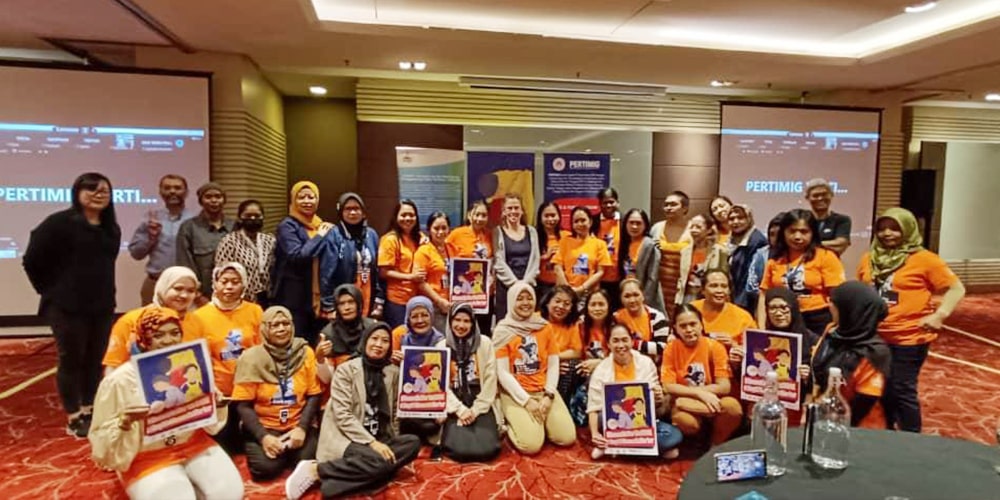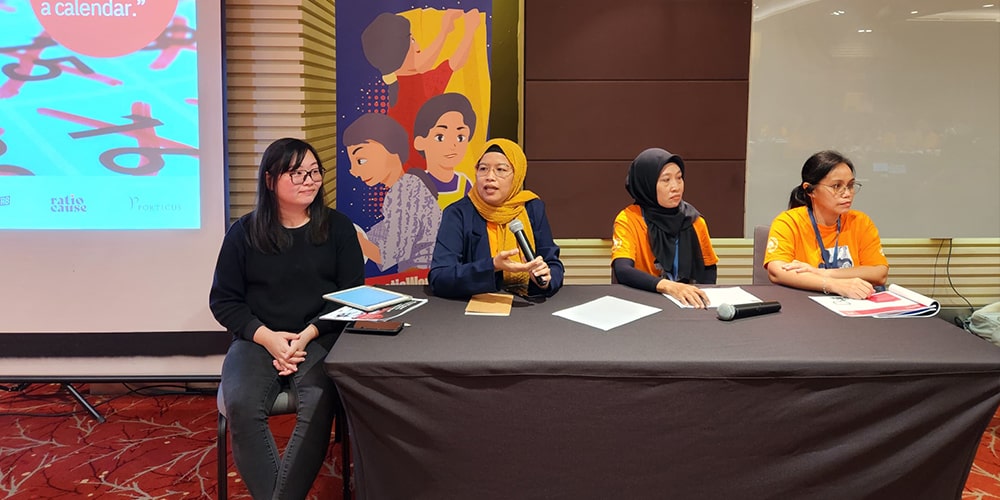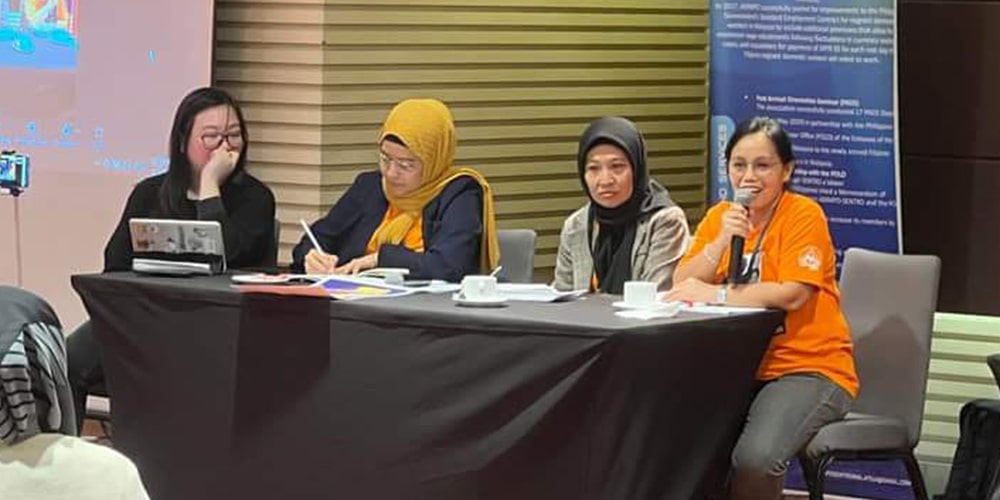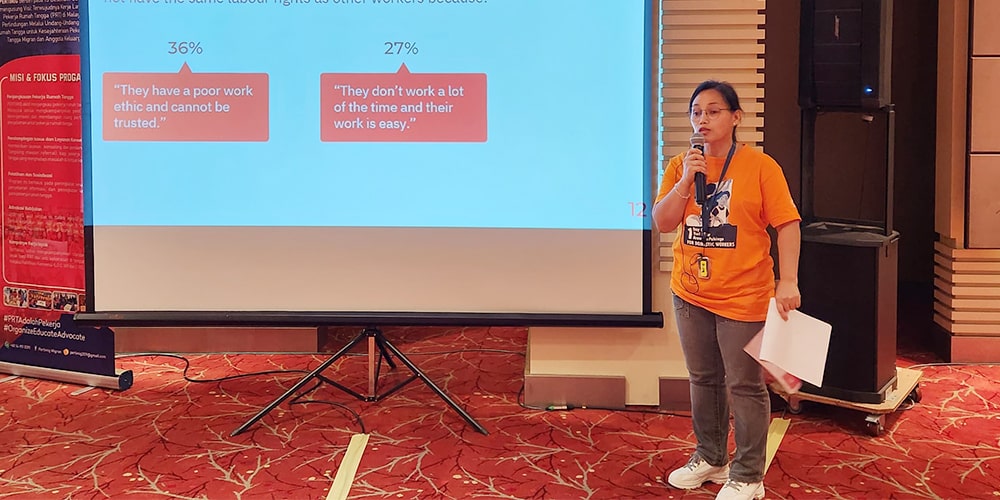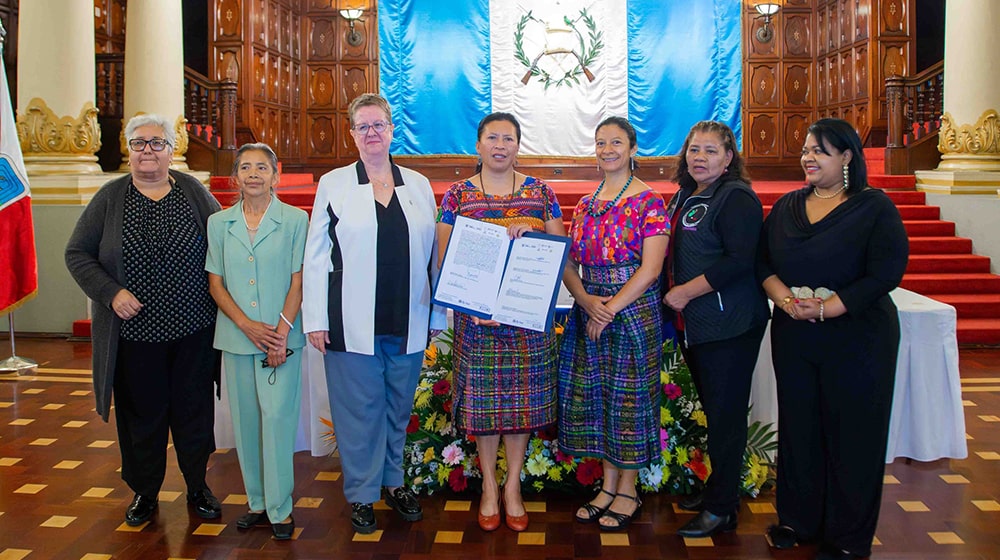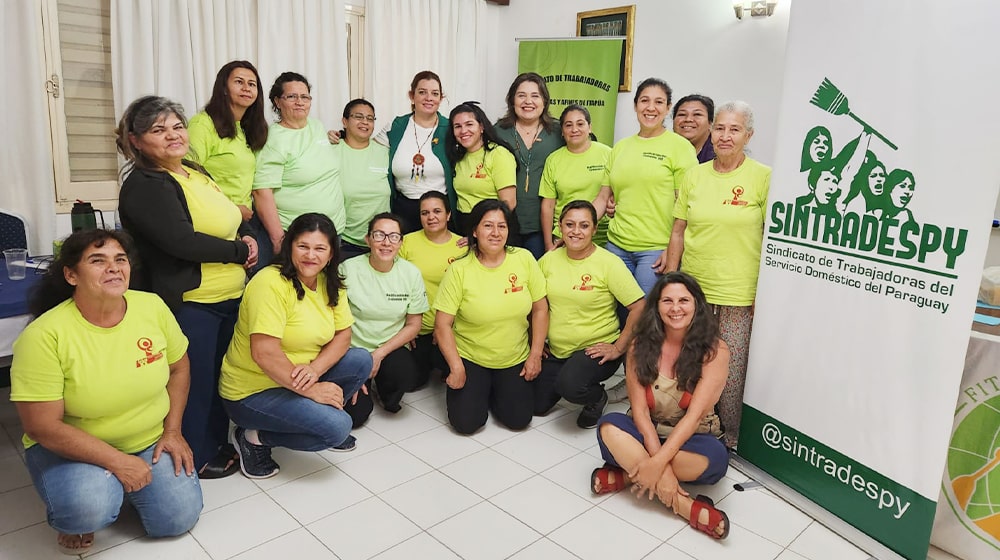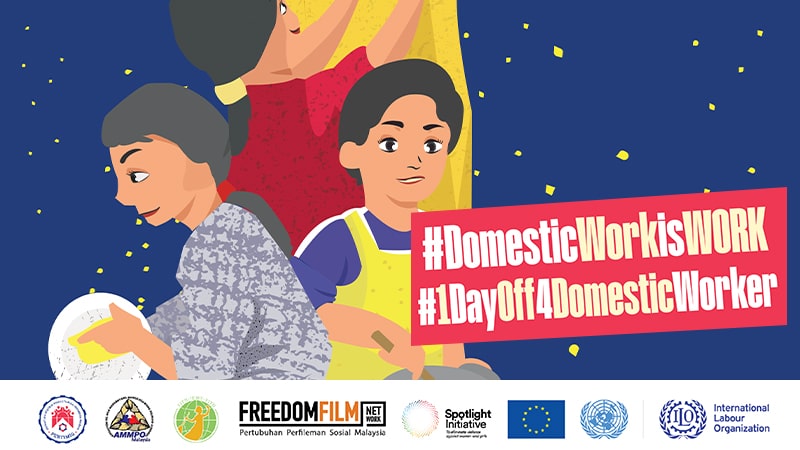
Malaysia, 3rd March 2024, IDWF, PERTIMIG and AMMPO launched a report on “My Employer Never Saw a Calendar – Why aren’t migrant domestic workers in Malaysia getting a day off?”. The report exposes that almost all migrant domestic workers (95%) in Malaysia are deprived of weekly days off.
The report is initiated by the International Domestic Workers Federation (IDWF) together with the Association Of National Overseas Filipino Workers In Malaysia (AMMPO), the Persatuan Pekerja Rumah Tangga Indonesia Migran (PERTIMIG). AMMPO and PERTIMIG worker leaders interviewed 108 live-in migrant domestic workers from Indonesia, the Philippines and Cambodia from September to November 2023. Close to half (43%) of migrant domestic workers surveyed worked seven days a week, and (41%) of them only received “an occasional” day off. For the latter group, this usually meant a day off once a month (51%) or once a fortnight (36%).
“I got my weekly day off only after 11 years of working for my employers, and this is because I have negotiated with them for a long time. But even if I can now have a day off, I must keep telling them what I’m doing on Sunday.” Binti, Vice-chairperson of PERTIMIG, tells the audience at the report launch about her experience during her report presentation.
The deprivation of weekly rest days affects workers’ health. Most migrant domestic workers (78%) surveyed expressed that not having a day off impacted their mental and physical well-being negatively. When they ask for a rest day, they can face abuse – sixteen respondents (15%) were subject to physical violence, threats and/or verbal abuse by their employer. Furthermore, confiscation of workers’ personal belongings impedes them from having a weekly day off – half (51%) reported that their personal belongings are taken by their employer or agency, including passports (95%), document contracts (56%), and cell phones (36%).
The report has collected employers’ views towards migrant domestic workers’ rights to weekly day offs. The IDWF commissioned Project Liber8 to conduct surveys and interviews with 100 employers and focused group discussions (FGD) with 11 employers in Malaysia. Of the 100 employers who completed the survey, 4% said their migrant domestic workers were “not workers”, but rather “part of the household”, and a further 15% described their relationship as “a less formal working arrangement” in which they supported the migrant domestic worker in return for help around the house. The exclusion of domestic workers from standard labour rights in the Malaysian Employment Act 1955 and the domestic workers are often referred to as “helpers” or “servants” contributes to the perception of domestic workers, not as workers.
More than a third of employers (36%) were also sympathetic to the view that migrant domestic workers should not get the same conditions as other workers because they “have poor work ethics and cannot be trusted”. Although more than half (63%) stated that they provide a weekly day off for domestic workers, only 17% of domestic workers said they received a weekly day off. Weekly day off for migrant domestic workers exists only in theory but not practice. Prevailing social attitudes towards both domestic work and migrant workers may explain why many employers feel it is acceptable to compel their employees to work on their weekly day-offs.
“Before employers recruit domestic workers, they have to undergo orientation, so they know how to handle the workers’ (rights).” Gemma Bangud, a member of AMMPO, expressed the need to educate employers.
“Right to rest is a human right.”, Claire Hobden, an ILO Specialist on Domestic Work and Other Vulnerable Work, explained at the report launch through a video message. She further said that the International Labour Convention 189 on Decent Work for Domestic Workers recognizes the rights of domestic workers as other workers, including their right to a weekly day off. When domestic workers are not allowed to leave the employer’s house, their passports are withheld, workers’ visas are tied to their employers, and workers are subject to violence and harassment, are all considered forced labour.
“The report is very good evidence-based for carrying out a “one day off” campaign,” Florida Sandasamy, the Project Coordinator for Protecting the Rights of Migrant Workers through Empowerment and Advocacy in Malaysia (MWEA) of the ILO, commented. “Negotiating with employers is a technical practice that domestic workers can do, but we need a law to protect the domestic workers’ rights,” Ms Sandasamy said.
“As domestic workers, we need a law to protect our rights for a 24-hour day off like other workers, but now this is not practised in Malaysia”, Anna Lisa, the Vice-chairperson of AMMPO, concluded the report launch and the discussion. The AMMPO and PERTIMIG leaders said they will use the report to lobby the government and employers to ensure the right to weekly day off.
For full report: Full Report.pdf
Executive summary: Executive Summary.pdf
Executive summary (ppt) in Bhs Indonesia: Executive Summary (PPT) – Bahasa.pdf
For more information about this report, please refer to:
AMMPO email at [email protected] or WhatsApp +60162883477
PERTIMIG email at [email protected] or WhatsApp +60 14-911 0391.
IDWF email at [email protected] or local contact at +60146087509

